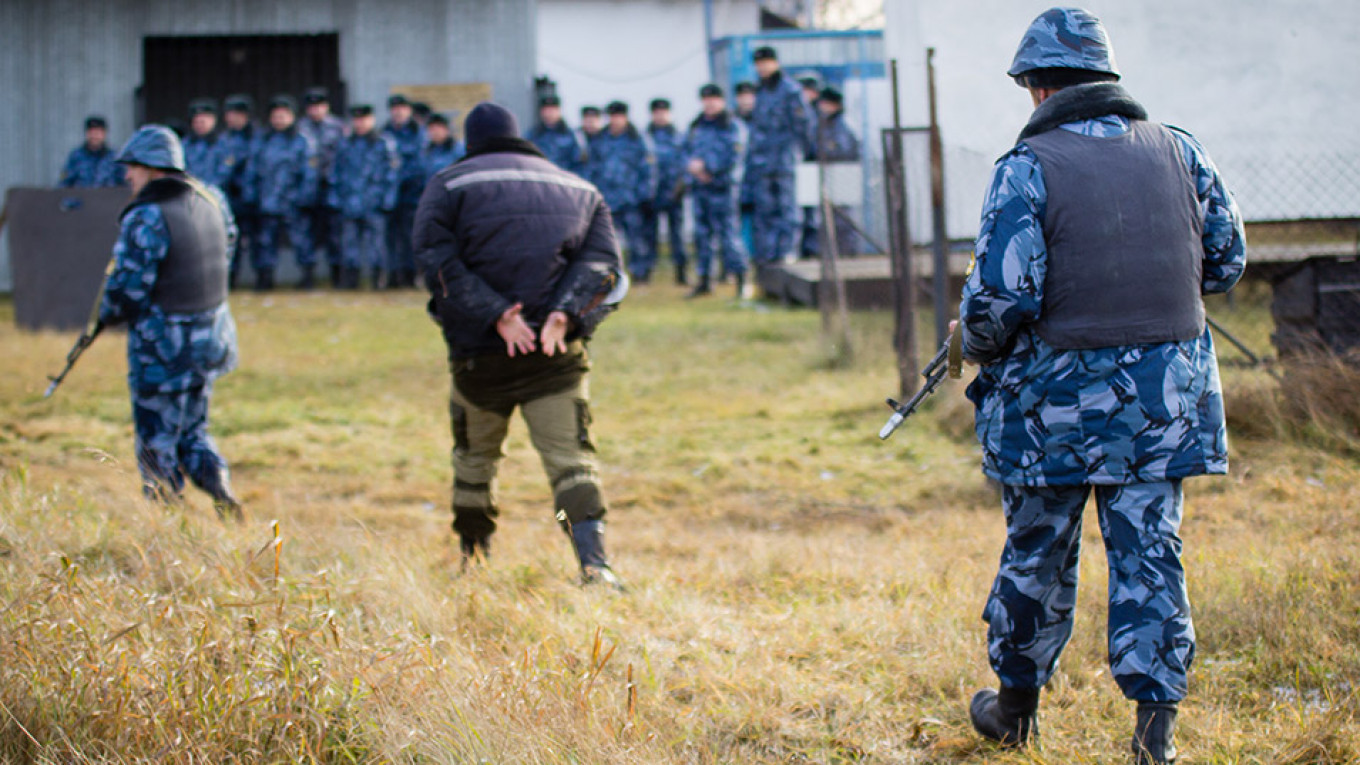
Russian authorities have said they want to relocate all prisons out of major cities, sparking concerns from activists that the move could violate prisoners’ rights and complicate visits by lawyers and relatives.
Justice Minister Konstantin Chuichenko told state television that the mass prison relocation is part of the Federal Prison Service’s “transformation” toward “effective and reasonable” management. Russia’s penitentiary system has been rocked by a series of torture and death scandals in recent years.
“The goal of this pilot project is to remove the reality of incarceration from our people in our cities,” Chuichenko told the state-run Rossia 24 broadcaster Thursday.
Chuichenko did not give a timeframe for the “optimization,” saying only that the Justice Ministry is currently drafting development concepts and legal proposals.
The mass prison transfer is part of the ministry’s three-pronged mission to “defend statehood, guarantee citizens’ rights and freedoms and ensure the rule of law,” he said.
Family members and lawyers will find it difficult to visit prisoners relocated to far-flung regions, argued Ilya Shablinsky, a legal expert with the Moscow Helsinki Group human rights organization.
“Considering the current [coronavirus] situation, this will complicate everything: the delivery of food, mail and everything else,” Shablisnky told the RBC news website.
Nikolai Svanidze, a member of the presidential Human Rights Council, said he sees nothing wrong with moving prisoners immediately outside city limits. But incarcerating them “somewhere in the desert steppe 500 kilometers away would certainly be terrible,” he told RBC.
Moscow-based Higher School of Economics 2015 research said that a majority of penal colonies and pre-trial detention centers are located within city limits in major Russian urban centers. Penal colonies in remote regions are a relic of the Soviet era, when the authorities had built them with the aim of developing infrastructure and promoting settlement in those areas.
